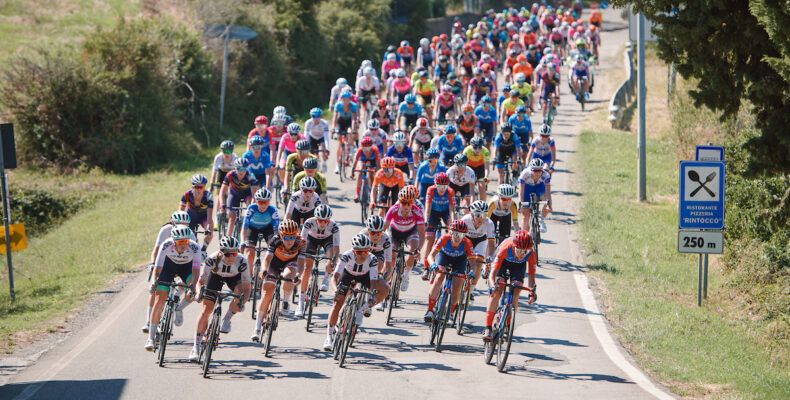We believe the only way to change our sport for the better is to work together as a unified body of athletes.
Every year The Cyclists' Alliance carries out a rider survey to provide hard data on the current ‘status quo’ of professional women's cycling. This highlights key issues and problems to solve. By tackling these, we can create lasting change.
In 2021, we decided to split the survey into three parts to ask a variety of questions:
(Part 1) Working Conditions covering;
- Salaries
- Contractual inclusions
- Rider reimbursements
- Second jobs / Studying
- Impact of Covid-19
(Part 2) Legal & Ethics covering;
- Legal Support
- Agent Support
- Ethical concerns
(Part 3) Team Culture covering;
- Professionalism
- Rider happiness & satisfaction within the team environment
KEY FINDINGS
Part One: Working Conditions
Salaries
- 86% of riders surveyed this year think that salaries for women's professional cycling are too low for the level of commitment.
- The number of professional riders with “no salary” has increased from 17% in 2018 to 34% in 2021.
- Due to the lack of minimum salary for UCI Women's Continental Road teams, the wage disparity gap between WWT riders and Continental riders continues to widen.
- Ensuring that all riders earn a minimum salary was one of the top topics that riders requested TCA to continue to advocate for. The other most voted topic was increasing live TV coverage of races.
Are you negotiating a new contract and don't know how much salary to ask for from the team?
Any full rider members of TCA can request salary guidance from The Cyclists' Alliance when negotiating a renewing or signing a new employment contract with a team so that they understand their economic value in the marketplace. Please reach out to Lexi at info@cyclistsalliance.org who can direct your salary enquiry to the right specialist.
Contractual Inclusions
- There is a vast difference between contractual inclusions of World Tour Teams and Continental teams demonstrating that the progression of professionalism is increasing for WWT riders but Continental riders do not experience the same standards. Below are two examples:
- 94% of WWT riders received medical support within their contract, whereas only 33% of Continental riders benefit from medical support. For the 2022 season, it will be mandatory only for Women's World Tour teams to "employ a doctor responsible for the organisation of care (the “chief medical officer”). Each rider must have a referring doctor identified by the team whether or not employed by the latter. They are subject to strict confidentiality with regard to the medical data in their possession."
- 11% of WWT riders received a pension plan vs 0% for Continental riders. For the 2022 season, WWT teams only must provide "Insurance providing for the payment of a pension, annuities or a capital at the end of the professional cycling career at the earliest, with a premium that will represent at least 12% of gross annual salary, limited to €115,000 per year"
Please note:
In all road stage races on the international calendar, the organisers must cover the subsistence expenses of the teams from the night before the start to the final day; riders must stay in the hotels provided by the organiser throughout the entire duration of the race (article 2.2.010).
Second Jobs & Studying
- Many riders are working and/or studying alongside the professional cycling career to support themselves financially and/or prepare themselves for life after sport.
- 38% of those surveyed study alongside their cycling career, either completing high school, university or a vocational course.
- 39% of those surveyed work a second job alongside their cycling careers. Of those working a second job:
- 24% are working less than 20 hours a week
- 15% are working more than 20 hours a week
- 67% of riders working more than 20 hours a week do not receive any salary from their team and 14% receive less than €5,000. Therefore, these riders are balancing work with their training and racing commitments to support themselves financially.
- 14% of survey respondents combine both studying & a second job with cycling
Impact of Covid-19 on the 2021 season
- Compared to 2020, riders have been impacted less by Covid-19 overall. However, we continue to see that riders on Continental teams are being negatively impacted more that riders on World Tour Teams.
- In 2020, 29% of riders experienced a salary reduction or lost it entirely whereas in 2021 only 5% of riders on World Tour teams had their salary reduced and only 1% of riders on Continental teams lost their salary entirely in 2021 due to the Covid-19 pandemic.
- When asked in 2020, 76% of riders were concerned that the pandemic would make it harder to secure a contract in 2021. Of the riders surveyed, 7% of riders on UCI Women's Continental road teams were unable to secure a contract with a team for 2021 and stated Covid-19 as the primary reason for this.
- In 2021, 20% of riders on Continental teams had to cover the costs of their own Covid-testing to travel to races., whereas 94% of WWT riders stated that all covid testing was included and covered by their employment contract.

